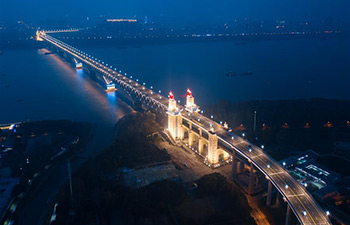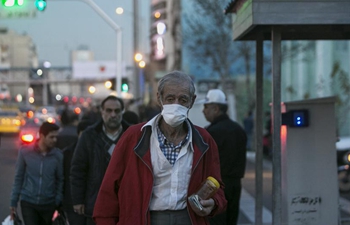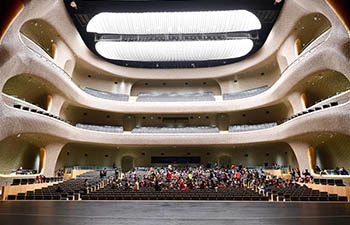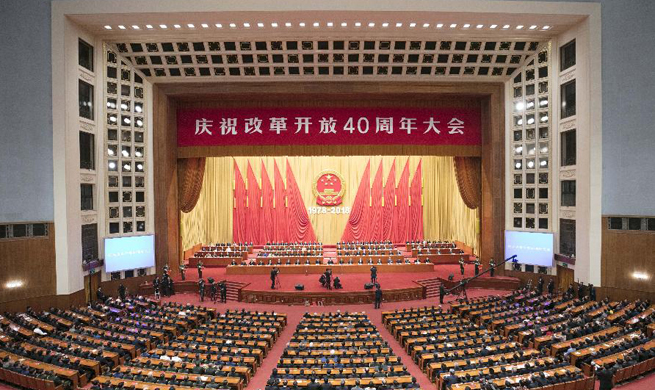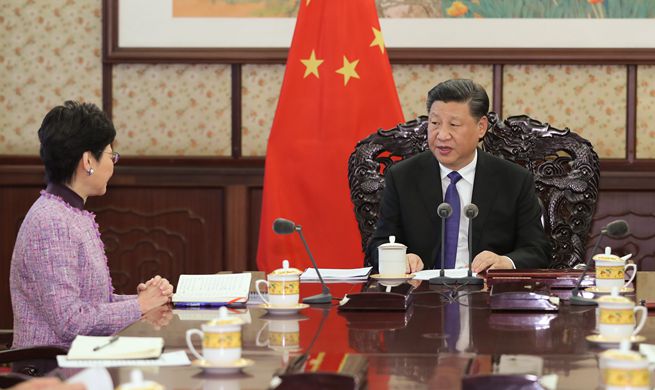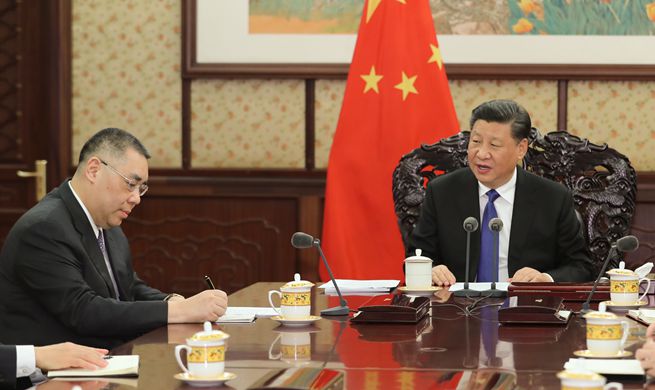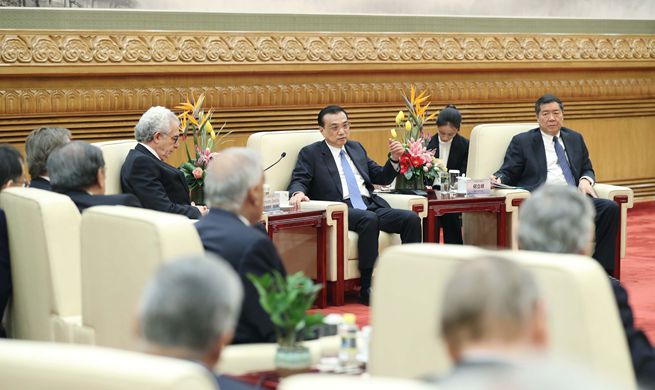SEOUL, Dec. 18 (Xinhua) -- South Korea planned to boost its manufacturing industry next year through government support in research and development (R&D), with an aim to raise the added value created in the sector to the level of Germany by 2030.
The Ministry of Trade, Industry and Energy said in its 2019 policy report to President Moon Jae-in that it aimed to increase the percentage of added value generated in the manufacturing industry to 35 percent of the total by 2030, which is equivalent to the level of Germany, from 25.3 percent as of 2017.
To bolster the leading industries of semiconductor, display panel and rechargeable battery, the government planned to help Samsung Electronics and SK Hynix, the world's top two memory chip makers, create a semiconductor cluster composed of four chip-making factories and about 50 suppliers.
The ministry said it will actively support the building of the cluster, for which the private sector would invest around 120 trillion won (106 billion U.S. dollars) for the next 10 years.
Export, which accounts for about half of the South Korean economy, was forecast to top 600 billion U.S. dollars for the first time in history this year. It was attributed to a double-digit monthly increase in semiconductor shipment.
The R&D for next-generation semiconductors and display panels will be supported by the government, which also planned to make a joint investment with the private sector in technologies related to rechargeable battery.
"Innovation in the manufacturing industry should be the key pillar of an industrial development strategy to reach the goal of innovative growth and inclusive country," said Moon during the policy report by the industry ministry.
Moon noted that the traditionally leading industries such as automobile and shipbuilding faced difficulties in doing business, instructing officials to take measures to resolve the difficulties in the short term while drawing up a long-term vision to advance the sectors.
The auto industry had hardships this year following the decision by GM Korea, a local unit of the U.S.-based General Motors, to shut down one of its five plants in the country in May, while the No. 1 carmaker Hyundai Motor and its affiliate Kia Motors recorded poor earnings.
To support the cash-strapped auto parts makers, the government planned to provide financial assistance worth 3.5 trillion won (3.1 billion U.S. dollars) for the local auto parts sector, including loan guarantee and public loan.
To boost domestic demand, the government will extend a 30-percent consumption tax cut for new passenger cars by the end of June, while lowering the consumption tax by 70 percent for those who replace decrepit diesel vehicles with new cars.
The government planned to expand subsidies to electric and hydrogen-powered vehicles, with an increased target of 430,000 electric vehicles and 65,000 hydrogen-powered vehicles on the road by 2022.
For the struggling shipbuilding sector, the government has already announced a plan last month to boost the industry by helping shipbuilders develop eco-friendly, autonomous navigation systems.
The government planned to invest about 1 trillion won (885 million U.S. dollars) every year by 2030 on the R&D in technologies of 100 industrial parts and materials and 20 equipment to reduce the dependence on imports.
Meanwhile, the government planned to increase low-paid jobs next year, which would be compensated by the local government's subsidies to workers in housing, welfare and childcare.
The ministry said it will expand the so-called Gwangju-type job creation projects next year. It refers to a job-creating project between local governments and companies to hire more workers subsidized in housing, welfare and childcare by local governments to complement low wages.
In Gwangju, about 330 km south of the capital Seoul, the country's biggest automaker, Hyundai Motor, was in talks with the municipal government to build a new assembly plant in the city to recruit up to 12,000 workers at half the wages Hyundai employees receive in other factories.
The job project has come under controversy as unionized Hyundai workers opposed it citing a possible side effect of lowering the average pay for other employees.
The ministry reported to President Moon that it will draw up detailed scheme on the Gwangju-type project in other regions by the end of March.
